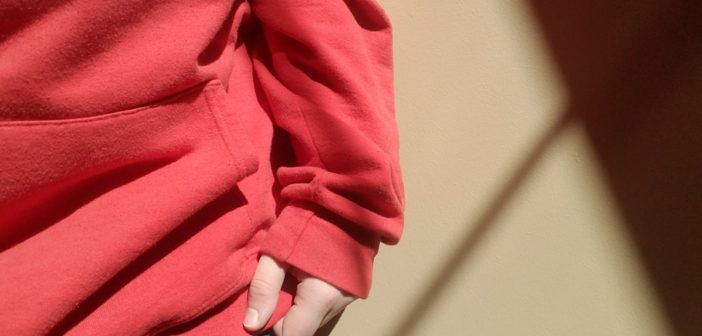April is known to millions across the U.S. as National Autism Awareness Month. As I write this it is April 2, 2019, known internationally as World Autism Awareness Day. I start seeing ads on my Facebook feed and across bulletin boards around the end of March, encouraging people to ‘light it up blue’ for autism awareness. For someone like me, April sends chills up my spine and makes me want to hide until May arrives. I’m autistic and I dread this month every year.
I was 17 years old when late one night I stumbled across a post online mentioning that girls were frequently under-diagnosed with autism, and attached was an article. I was curious, having only surface-level knowledge of what autism was, I clicked the link. As I read, My heart started speeding up. I was seeing myself reflected on the page.
Learning to appease and apologize. Observing people from a distance and imitating them. Intensity of interests. Escaping into fiction.
Frantically, I searched further. Symptoms kept lining up and before I knew it I was sobbing. In the dark of my room, my face illuminated by the soft glow of my phone’s screen, I cried. But I wasn’t sad, I was filled with relief. My entire childhood I had an understanding that I was ‘weird’; that I didn’t do things like other kids. I chalked it up to an odd personality and my already-diagnosed ADHD. But here was my entire existence laid out clear as day. And I wasn’t alone, other people like me were out there.
Fast forward one year and I’d received an official diagnosis, something that many women never obtain. By this point I had delved deep into the online autism community, to learn more about who I was and who I could be. I met other autistic people, I learned terms like “stimming” and “special interest,” and I learned why so many autistic people despise April.
The ‘light it up blue’ tradition was launched by Autism Speaks, a group almost universally hated by autistic adults. Their advocacy for a cure, use of othering language, fear-mongering ad campaigns and arguably abusive therapies has made them deeply reviled. The autistic community also rejects their use of puzzle pieces as an autism symbol because of the association to ‘solving the puzzle of autism,’ or the idea that autistic people have ‘pieces missing.’ Despite removing references to a cure from their mission statement in 2016, Autism Speaks continues to damage and unnerve the autistic community.
Many autistic people today are speaking out in support of the neurodiversity movement, which views autism as a neurological difference which should be supported and accepted rather than wiped from human existence. Autism is an intrinsic part of who I am, that’s why it’s considered a pervasive developmental disorder. If you separate the autism from the person, you erase the person. I struggle with a lot of things, but I like who I am, autism included. I think a great deal of what autistic people (and many other disabled people) struggle with comes from the way society expects us to function, rather than accommodating the way we were built to function. It’s like trying to shove a square peg through a round hole; all you’ll end up with is a damaged peg.
So individual advocates and groups like the Autistic Self Advocacy Network and the Autistic Women & Nonbinary Network have pushed in recent years for a new term: Autism Acceptance Month. Because if we’re being honest, awareness should be the bare minimum. Activists are encouraging people to wear red instead of blue, which has been spread across social media with #RedInstead. We think it’s time to take back April, make it something to celebrate rather than dread.
If you value your autistic family, friends and coworkers, maybe it’s time to give some thought to the best ways to support them. If you value your autistic peers, like me, take a moment and reflect on the kind of activism and advocacy you engage in. Think carefully about whether you are amplifying our voices or merely speaking over us.
Trust me, I don’t need your awareness, I need your acceptance.


4 Comments
Thank you, Megan, for this timely and important essay. #NeurodiversityForever!
Beautifully written.
Our pet peeve: Autistic kids are not “lucky” their parents love them.
They are worth being loved as much as other kids are.
I agree and feel that *I* am the lucky one. My daughter has taught me more that any other person in my life.